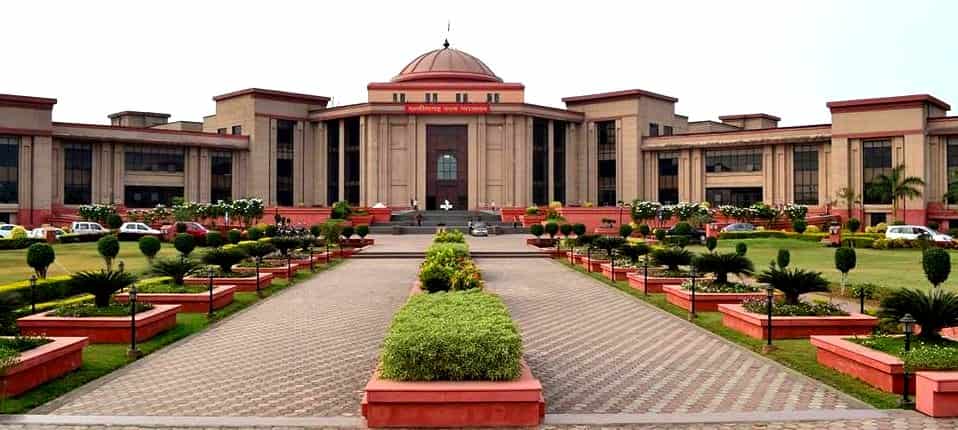The Chhattisgarh High Court dismissed a Public Interest Litigation (PIL) seeking registration of FIR and carrying out investigation on the basis of statutory information provided by Income Tax Department and Enforcement Directorate against the high-ranked bureaucrats, who are involved in the cases of corruption.
Anil Khare, Senior Advocate submit that the respondent authorities have not registered FIR against the high-ranked bureaucrats, who are involved in the cases of corruption despite disclosure of the respondent No.6 & 7 (Income Tax Department and Directorate of Enforcement) to the respondent authorities that the high ranking officers namely Anil Tuteja, Saumya Chaurasia, Vivek Dhand and Sameer Vishnoi have committed cognizable offences under the Prevention of Corruption Act and 1988 Indian Penal Code, 1860.
On the other hand, State counsel objected the locus standi of the petitioner for filing this writ petition as a Public Interest Litigation (PIL) and contended that it was filed by him with an oblique motive to vindicate his personal grievances which is not maintainable. It is further submitted that the petitioner is an active member of political party (BJP) and office bearer as BJP State Office Incharge. Therefore, the petition deserves to be dismissed.
Having considered the rival submissions of the Counsel for the parties and gone through the record, the Division Bench of Chief Justice Ramesh Sinha and Justice Rakesh Mohan Pandey noted that it is the duty of the Court to ensure that there is no personal gain, private motive and oblique notice behind filing of PIL. In order to preserve the purity and sanctity of the PIL, the Courts must encourage genuine and bonafide PIL and effectively discourage and curb the PIL filed for extraneous considerations.
“The Courts should, prima facie, verify the credentials of the petitioner before entertaining a PIL. It is also well settled that the Courts before entertaining the PIL should ensure that the PIL is aimed at redressal of genuine public harm or public injury. The Court should also ensure that there is no personal gain, private motive or oblique motive behind filing the public interest litigation. The Courts should ensure the jurisdiction in public interest is invoked for genuine purposes by persons who have bona fide credentials and who do not seek to espouse or pursue any extraneous object. Otherwise, the jurisdiction in public interest can become a source of misuse by private persons seeking to pursue their own vested interests. ‘
A Division Bench of the Allahabad High Court, in the case of Gurmet Singh Soni Vs. State of U.P. and others : 2021 (5) ADJ 409, noticing the decision of the Apex Court in State of Uttaranchal Vs. Balwant Singh Chaufal & Ors., 2010 AIR SCW 1029 and other judgments of the Apex Court on the issue, has dismissed the public interest litigation.
The Courts cannot allow its process to be abused for oblique purposes, as was observed by the Supreme Court Court in Ashok Kumar Pandey v. State of West Bengal, reported in (2004) 3 SCC 349.
The Supreme Court, in Gurpal Singh v. State of Punjab & Others reported in (2005) 5 SCC 136, the appointment of the appellant as Auction Recorder was challenged. The Court held that the scope of entertaining a petition styled as a public interest litigation and locus standi of the petitioner particularly in matters involving service of an employee has been examined by this Court in various cases. The Court observed that before entertaining the petition, the Court must be satisfied about (a) the credentials of the applicant; (b) the prima facie correctness or nature of information given by him; (c) the information being not vague and indefinite. The information should show gravity and seriousness involved. The court has to strike balance between two conflicting interests; (i) nobody should be allowed to indulge in wild and reckless allegations besmirching the character of others; and (ii) avoidance of public mischief and to avoid mischievous petitions seeking to assail, for oblique motives, justifiable executive actions.
The petitioner has no locus standi to file the present PIL for the reliefs claimed therein as it appears that for oblique motive, the present PIL has been filed by the petitioner who being in a legal profession is well aware of the remedies available to him for approaching the appropriate Court/forum for redressal of his grievance, if any , held by the High Court.
“The petitioner has also failed to establish his locus standi to file this PIL as he not only being an Advocate, is also an active member of political party. This petition appears to be for oblique purpose best known to the petitioner as neither the Income Tax Department, Central Bureau of Investigation nor the Directorate of Enforcement has come forward to challenge the alleged inaction on the part of the State to take action against the delinquent officials.”
In the present case, the High Court was not satisfied that this is a genuine petition filed in public interest so as to invoke the jurisdiction in the public interest under Article 226 of the Constitution. Even otherwise, the petitioner has alternative efficacious remedy for redressal of his grievance as raised in this petition.


